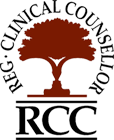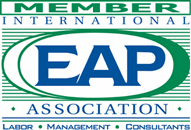In a world where opinions are easily shared, and debates often take precedence over discussions, the timeless principle of “Seek first to understand, then to be understood” offers profound wisdom. This concept, famously coined by Stephen Covey in the 7 Habits of Highly Effective People, is a powerful tool for cultivating deeper relationships, fostering empathy, and promoting effective communication. But how does one truly “seek to understand”?
‘Seeking to understand’ starts with two crucial elements: active listening and emotional regulation. Let’s explore both.
The Power of Listening: Beyond Hearing
At its core, listening is much more than just hearing words. While hearing is a passive physical act, listening requires active engagement. Active listening means paying attention to the speaker, understanding their message, and responding thoughtfully. In the context of the “Seek First to Understand” principle, listening is the gateway to truly grasping the emotions, thoughts, and intentions behind another person’s words.
The challenge, however, lies in the distractions that often accompany conversations. We live in a time of constant information overload, where our attention spans are shorter than ever. When we engage in conversations, our minds tend to wander, often focusing on how we will respond rather than fully understanding what the other person is saying.
Active listening requires us to:
- Be Fully Present: Put away distractions—phones, laptops, or the television. Focus solely on the speaker.
- Reflect: After hearing the other person, reflect on what was said. Summarize their message in your own words to confirm understanding.
- Ask Open-Ended Questions: Show interest in their perspective by asking questions that invite more depth, such as “Can you tell me more about that?” or “What do you think led to that?”
Mastering the art of listening not only demonstrates respect for others’ viewpoints but also deepens your insight into their feelings and motivations. If you’re seeking to strengthen your communication in relationships, couples counselling in Vancouver can offer expert guidance.

Emotional Regulation: Staying Calm Amidst the Storm
Listening with an open heart requires more than just mental effort—it demands emotional discipline. Our natural inclination is often to react, especially when we feel triggered or when someone’s viewpoint challenges our own. That’s where emotional regulation comes in.
Emotional regulation refers to the ability to manage and control one’s emotional responses, particularly in stressful or challenging situations. When we regulate our emotions, we remain calm, present, and more receptive to others’ perspectives. Without emotional regulation, we risk letting our own feelings cloud our ability to truly understand someone else.
Here are a few strategies to regulate emotions during challenging conversations:
- Pause Before Reacting: When emotions rise, take a moment to breathe deeply before responding. This brief pause allows you to regain composure and respond thoughtfully rather than react impulsively.
- Practice Empathy: Try to put yourself in the other person’s shoes. Ask yourself: “What are they feeling right now? What led them to think or say this?” This helps to detach your personal emotions from the conversation and see things from a broader perspective.
- Reframe Your Thinking: If you find yourself becoming defensive or upset, reframe the situation. Instead of viewing the conversation as a conflict, see it as an opportunity to learn and grow. Remind yourself that seeking understanding isn’t about agreeing with someone—it’s about respecting their viewpoint.
- Recognize Emotional Triggers: Being aware of your emotional triggers allows you to stay grounded. If a certain topic or phrase makes you feel defensive, recognize it and choose to respond with calm rather than reacting impulsively.
If emotional regulation is a recurring challenge, life coaching in Vancouver can support your journey toward emotional mastery.
The Benefits of Seeking to Understand
- Builds Trust and Connection: When you listen to others without judgment and regulate your emotions, you foster trust. People feel heard, valued, and understood. This creates stronger, more authentic relationships, whether in personal or professional settings.
- Promotes Collaboration: Understanding others opens the door to collaboration. By first seeking to understand, you create an environment where ideas flow freely, and differences become opportunities for growth.
- Enhances Emotional Intelligence: Regular practice of active listening and emotional regulation enhances emotional intelligence (EQ), a key factor in personal and professional success. With better EQ, you can navigate complex social situations with grace, empathy, and effectiveness. If you’re navigating transitions or leadership roles, leadership coaching can help refine these skills.
- Reduces Conflict: Misunderstandings often lead to conflict. By prioritizing understanding, you minimize the chances of conflict escalating. People are more likely to stay calm and engage in productive conversations when they feel understood. For deeper support in managing conflict, consider conflict resolution services in Vancouver.

Conclusion: The Art of Listening and Emotional Mastery
“Seek first to understand” is not just a communication technique—it’s a mindset that, when practiced, leads to more harmonious interactions and deeper relationships. It requires an intentional focus on the other person’s message, the art of listening with empathy, and the emotional regulation necessary to keep an open heart and mind. In a world that often prioritizes speaking over listening, this simple principle has the power to transform how we relate to others, fostering understanding in place of division.
By mastering the art of listening and regulating your emotions, you not only elevate your relationships but also contribute to a more compassionate and connected world. So, the next time you find yourself in a conversation, take a deep breath, listen with intention, and seek to understand before seeking to be understood. You may be surprised by the doors it opens.
If you find yourself struggling to communicate effectively in your personal or professional life, coaching services in Vancouver or counselling support can provide personalized tools for growth.






